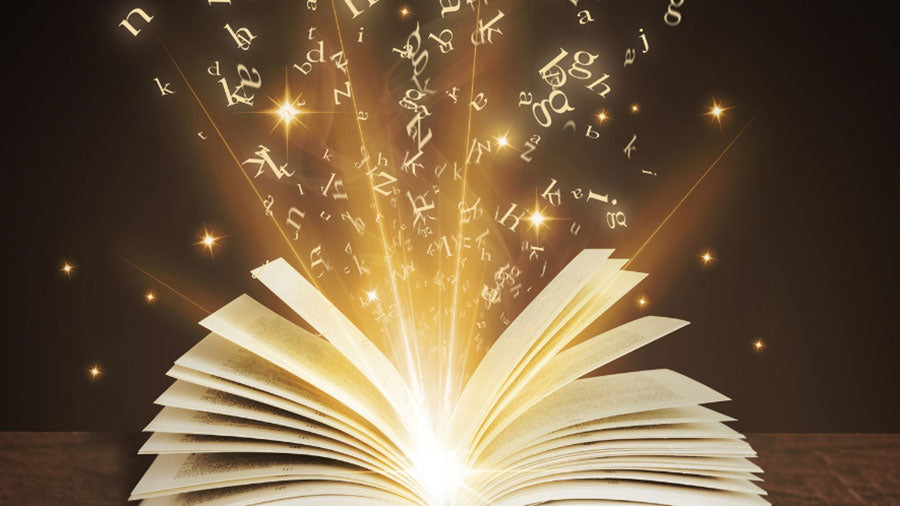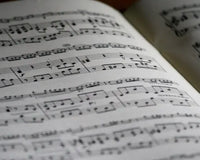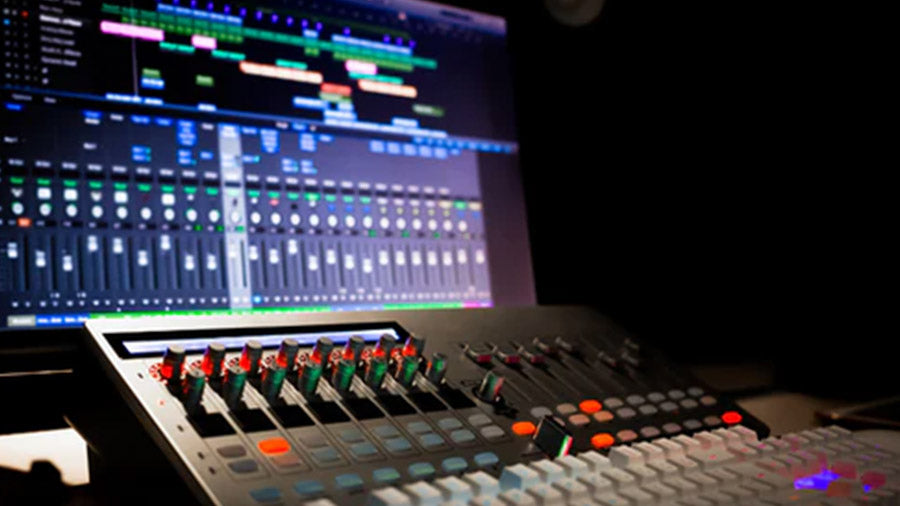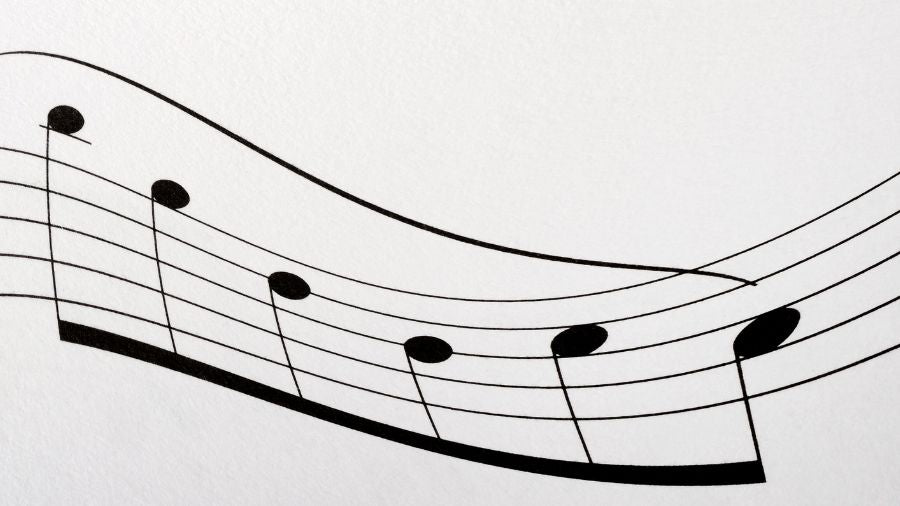Learning music theory is an essential aspect of becoming a well-rounded musician. Whether you're a beginner or an experienced musician, a solid understanding of music theory can significantly enhance your musical abilities and creativity. One of the best ways to learn music theory is through books, which provide a structured and comprehensive approach to learning. This guide will explore the top 10 best books for learning music theory, their advantages and disadvantages, and how they can help you in your musical journey.
1. Alfred's Essentials of Music Theory by Andrew Surmani

Alfred's Essentials of Music Theory is a highly recommended book for beginners and experienced musicians. It offers a complete walkthrough of music theory, covering fundamentals and advanced concepts. The book consists of 75 lessons, each accompanied by exercises to reinforce your understanding. Additionally, it includes training CDs to help you develop your ear training skills.
Alfred's Essentials of Music Theory provides a systematic approach to learning music theory. Including exercises and training, CDs allow for practical application and reinforcement of concepts. It is suitable for both self-study and classroom use. Some users may find the book too basic if they already have a solid foundation in music theory. Additionally, the focus is primarily on Western classical music, which may not cater to those interested in other genres.
2. A Complete Guide to Music Theory by Toby Rush

A Complete Guide to Music Theory is a eBook covering the ABRSM music theory exam syllabus. It is designed to make music theory more digestible, providing detailed explanations and examples for each grade. The eBook format allows easy access and portability, making it a convenient resource for students and teachers.
This guide breaks down music theory concepts into manageable sections, making it easier for beginners to grasp the fundamentals. The eBook format allows instant access and the ability to study on the go. It is an excellent resource for those preparing for music theory exams.
The eBook format may not be suitable for those who prefer physical books. Additionally, the focus is primarily on the ABRSM syllabus, which may limit its applicability to other music theory systems.
3. Musician's Guide to Theory and Analysis by Jane Piper Clendinning and Elizabeth West Marvin

The Musician's Guide to Theory and Analysis textbook is used in university music courses. It covers various music theory topics, from the fundamentals to more advanced harmony and form. The book includes a workbook and an anthology of examples for reference. It is particularly well-suited for those interested in classical music theory.
This textbook thoroughly explores music theory, making it suitable for students pursuing a deeper understanding of the subject. Including a workbook and examples allows for practical application and reinforcement of concepts. It is a valuable resource for classical music theory. The focus on classical music may not cater to those interested in other genres, such as pop or jazz. The exercises in the workbook may require additional guidance for beginners.
4. The Jazz Theory Book by Mark Levine

The Jazz Theory Book by Mark Levine is an essential resource for those studying jazz music. Endorsed by renowned jazz musicians, it looks at jazz harmony and theory. The book covers intermediate and advanced concepts, providing over 750 examples to illustrate jazz language and improvisation. It is widely used in university jazz programs.
This book is the go-to resource for jazz theory, providing information for jazz musicians at all levels. The extensive examples and explanations make it accessible to beginners and experienced players. It offers a comprehensive understanding of jazz harmony and improvisation. The focus on jazz may limit its applicability to musicians interested in other genres. Beginners may find certain concepts challenging without prior knowledge of music theory.
5. Music Theory for Guitarists by Tom Kolb
Music Theory for Guitarists is a book specifically tailored for guitar players who want to understand music theory in the context of their instrument. The book explains music theory concepts using plain language and visual diagrams, focusing on the guitar fretboard. The book includes audio tracks for examples and practice.
This book provides a guitar-centric approach to learning music theory, making it easier for guitarists to apply the concepts to their playing. The visual diagrams and audio tracks enhance understanding and practical application. It is suitable for beginners and intermediate guitarists. The guitar-centric approach may not cater to musicians who play other instruments. Advanced guitarists may find specific topics to be too basic.
6. Barron's AP Music Theory

Barron's AP Music Theory is an invaluable resource for students preparing for the AP music theory exam. The book covers all the content required for the exam, from fundamentals to harmonic organization, composition, and analysis. It includes downloadable audio tracks for aural practice and practice exams with answers.
This book offers comprehensive coverage of the AP music theory exam content, making it an essential resource for exam preparation. Including audio tracks and practice exams enhances practical application and test readiness. It is suitable for both self-study and classroom use. The focus on the AP music theory exam may limit its applicability to those not pursuing it. Beginners may find certain concepts challenging without prior knowledge of music theory.
7. Music Theory for Computer Musicians

Music Theory for Computer Musicians is a book designed for DJs, gigging musicians, and electronic music producers who want to understand music theory in the context of electronic music production. It teaches fundamental theory ideas using the MIDI keyboard as the centre and explores different software tools. It is suitable for those with no prior knowledge of playing an instrument.
This book caters to the specific needs of DJs, gigging musicians, and electronic music producers, providing practical insights into music theory for electronic music production. The focus on using the MIDI keyboard and software tools makes it accessible to those without instrumental experience. Musicians primarily working with acoustic instruments may find the electronic music focus less relevant. Experienced musicians may find specific topics to be too basic.
8. Music Theory For Dummies by Michael Pilhofer and Holly Day

Music Theory For Dummies is part of the popular For Dummies series, known for its accessible and beginner-friendly approach to various topics. This book breaks down music theory into easily digestible chunks, covering multiple topics, including rock, jazz, blues, composing, arranging, harmony, and chords. It includes a CD with musical excerpts for listening examples.
This book provides a beginner-friendly introduction to music theory, making it accessible to those with little prior knowledge. Including various genres and practical topics expands its applicability to different musical interests. The CD with musical excerpts enhances understanding and ear training. Advanced musicians may find specific topics to be too basic. The focus on popular music may not cater to those interested in classical or niche genres.
9. How to Read Music in 30 Days by Matthew Ellul

How to Read Music in 30 Days is a book that aims to teach readers how to read and understand sheet music in a month. It breaks down music notation, rhythm, and details step-by-step. The book includes clear diagrams and over 100 written exercises to practice and test your knowledge.
This book provides a structured and accessible approach to learning how to read music. The step-by-step lessons and exercises allow for gradual progress and reinforcement of concepts. It suits beginners or those looking to improve their music reading skills. Advanced musicians may find the content too basic if they are proficient in reading sheet music.
10. Music Theory in Practice by Eric Taylor

Music Theory in Practice is a series of books by Eric Taylor that follows the ABRSM syllabus for music theory exams. Each book covers topics required for specific grades, providing exercises to practice and test understanding. The series focuses on the practical application of music theory concepts.
This series offers a structured approach to learning music theory based on the ABRSM syllabus. The exercises and questions allow for practical application and reinforcement of concepts. It is suitable for students preparing for music theory exams. The series may not cater to music theory interests outside the ABRSM syllabus. The lack of detailed explanations may require additional guidance for beginners.
Learning music theory is essential to becoming a well-rounded musician. The top 10 best books for learning music theory provide various resources for beginners and experienced musicians. From textbooks to guitar-centric guides and exam preparation materials, there is a book to suit every learner's needs.












